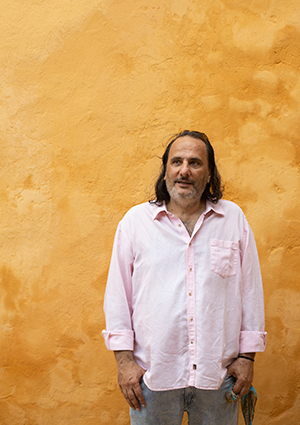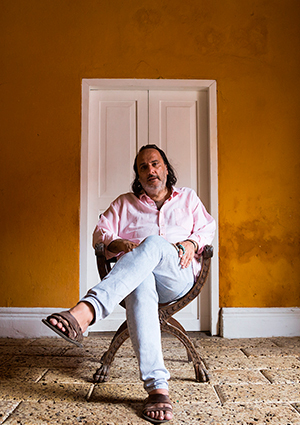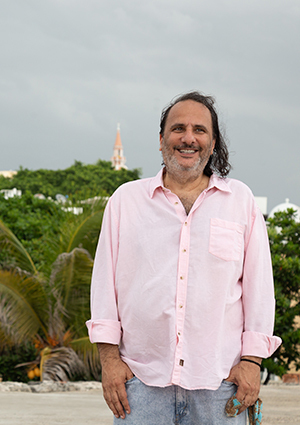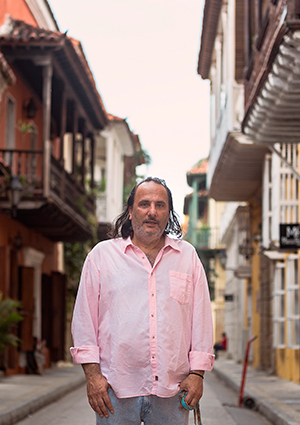Director, Screenplay, Assistant director, Director of photography, Actor / Actress
Felipe Aljure
Felipe Aljure is one of the top representatives of Colombian cinema of the past three decades. In 1991, he made his directorial debut with La gente de la universal (The People at Universal), a feature film whose aesthetic innovations and narratives have turned it into a cult film of national cinema, considered by many as the best film in the history of Colombian cinema. Subsequently, after directing the TV series Mambo (1994), he was the first director of the Ministry of Culture’s Office for Cinematography and played a key role in the process of formulating Colombia’s Film Law. This experience kept him away from the set for a long time, during which he served as a consultant, a university professor and in other cultural areas of the country. It was not until 2006 that he went back to work as a director for the silver screen with El colombian dream (The Colombian Dream), and nine years later with Tres escapularios (Three Scapulars, 2018), showing continuous technical, aesthetic and narrative experimentation in both.
Born in Girardot, Cundinamarca, Aljure studied Art and Technique of Film Making in London. He started out in the film world as a production assistant on Chronicle of a Death Foretold (1987) by the Italian director Francesco Rosi, camera assistant on films such as The Mission (1986) by the English filmmaker Roland Joffe, assistant director on Maria Cano (1990) by Camila Loboguerrero and Rodrigo D. No Future (1990) by Victor Gaviria. His filmography includes credits as the head of local casting and second unit director of Love in the Time of Cholera (2007) by Mike Newell, supervising producer in Colombia of The Next Three Days (2010) by Paul Haggis and executive producer of The Lost City of Z (2016) by James Gray.
He recently took over the Artistic Direction of the 59th Cartagena de Indias International Film Festival - FICCI. Regarding this new challenge, he says that "the first thing we will do is preserve the legacy that the festival has created in 58 editions and honor the work of Victor, Monica and Diana, who have kept the festival active and visible through their management over time. The festival will always have good cinema, guests who contribute and deep reflections on the current state of cinema in Colombia, the Caribbean, Latin America and worldwide. This platform must be defended and guided towards current social, technological and cultural events in the world, so that going to the festival is always an experience that enriches us as individuals, regardless of whether we are filmmakers, cinephiles or simply people who like movies and the city of Cartagena.
July 2018.
Filming
Director
THREE SCAPULARS (2018)
Director
EL COLOMBIAN DREAM (2006)
Director
LA GENTE DE LA UNIVERSAL (1994)
Screenplay
THREE SCAPULARS (2018)
Screenplay
EL COLOMBIAN DREAM (2006)
Assistant director
MARÍA CANO (1990)
Assistant director
RODRIGO D NO FUTURO (1990)
Actor / Actress
SOPLO DE VIDA (1999)








